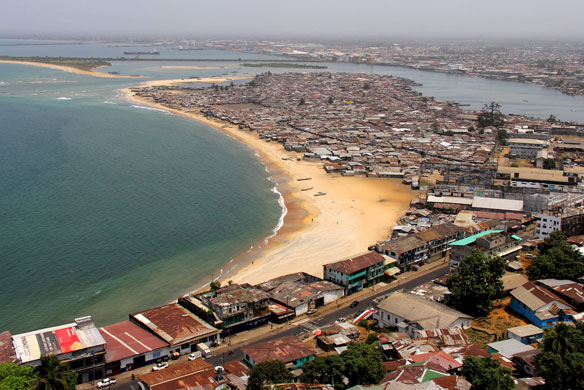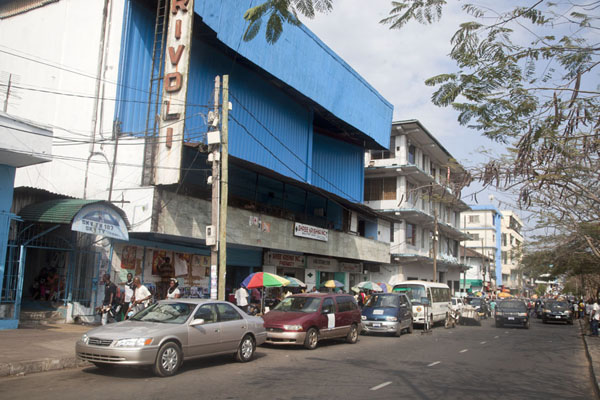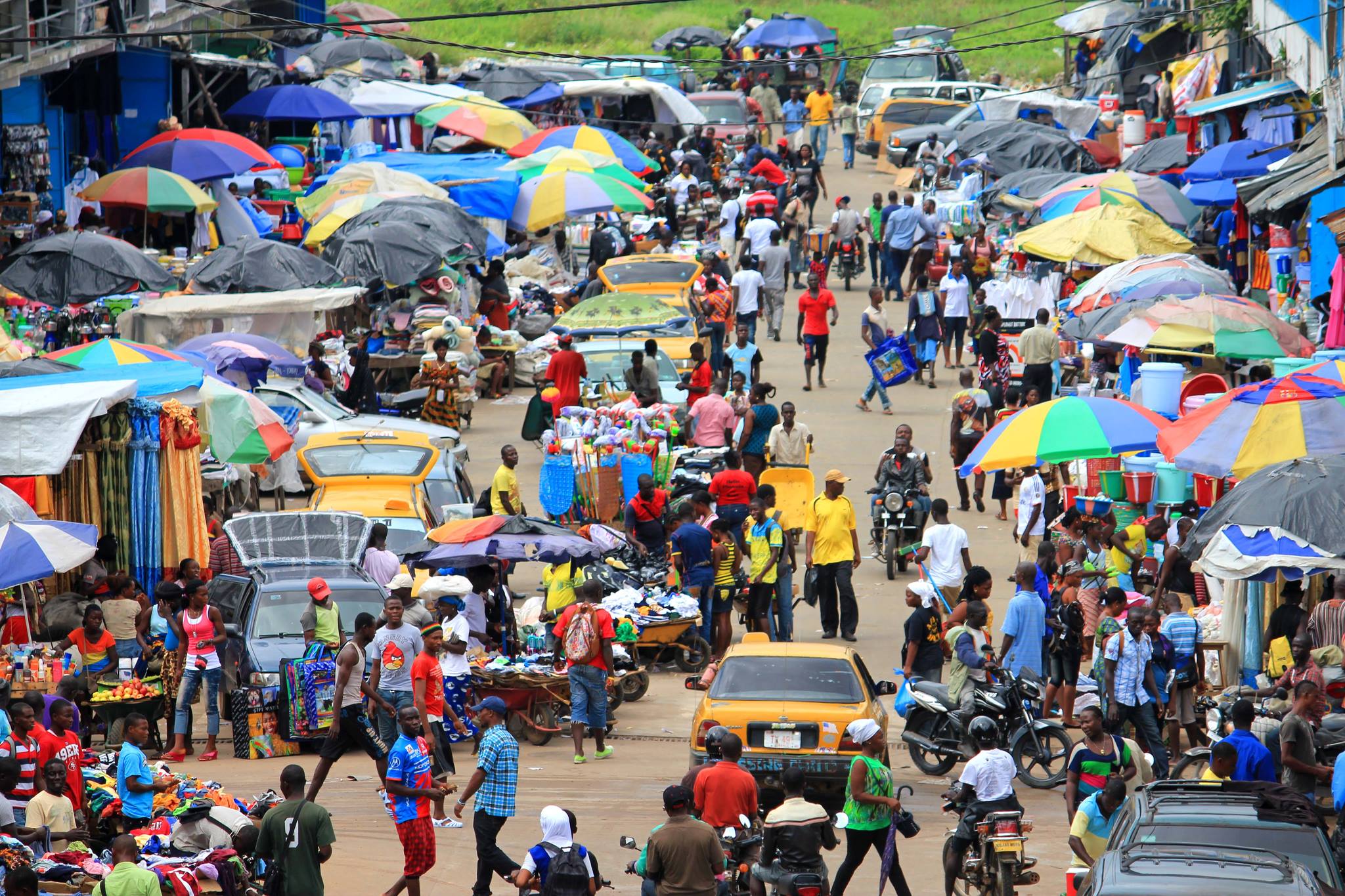Liberia – Jan 2-5, 2017
Liberia is a country on the West African coast. Liberia means “Land of the Free” in Latin. It is bordered by Sierra Leone to its west, Guinea to its north and Ivory Coast to its east. It covers an area of 111,369 square kilometres and has a population of 4,503,000 people. English is the official language and over 20 indigenous languages are spoken, representing the numerous tribes who make up more than 95% of the population.
Forests on the coastline are composed mostly of salt-tolerant mangrove trees, while the more sparsely populated inland has forests opening onto a plateau of drier grasslands. The climate is equatorial, with significant rainfall during the May–October rainy season and harsh harmattan winds the remainder of the year. Liberia possesses about forty percent of the remaining Upper Guinean rainforest. It was an important producer of rubber in the early 20th century.
The Republic of Liberia, beginning as a settlement of the American Colonization Society (ACS), declared its independence on July 26, 1847. The United States did not recognize Liberia’s independence until during the American Civil War in 1862. Between 1822 and the American Civil War, more than 15,000 freed and free-born Black Americans from United States and 3,198 Afro-Caribbeans relocated to the settlement. The Black American settlers carried their culture with them to Liberia. The Liberian constitution and flag were modeled after those of the United States. On January 3, 1848 Joseph Jenkins Roberts, a wealthy, free-born Black American from Virginia who settled in Liberia, was elected as Liberia’s first president.
Liberia is the only African republic to have self-proclaimed independence without gaining independence through revolt from any other nation, being Africa’s first and oldest republic.
Sapo National Park is one of the most stunning patches of rainforest left in West Africa, while the sands of pretty Robertsport are shingled with fishing canoes and huge granite gems.
Official Name. Republic of Liberia
Capital and largest city. Monrovia 6°19’N 10°48’W
Languages. Official English. Spoken and national Liberian English
Ethnic groups. 20.3% Kpelle, 13.4% Bassa, 10.0% Grebo, 8.0% Gio, 7.9% Mano, 6.0% Kru, 5.1% Lorma, 4.8% Kissi, 4.4% Gola, 20.1% others
Religion. Christianity
Government. President Ellen Johnson Sirleaf. Senate and House of Representatives
Formation and Independence. Settled by the American Colonization Society 1822. Independence July 26, 1847
Area. Total 111,369 km2 (103rd), Water (%) 13.514
Population. 2015 estimate 4,503,000. 2008 census 3,476,608 (130th). Density. 40.43/km2 (180th)
GDP (PPP). 2016 estimate. Total $3.879 billion. Per capita $881
GDP (nominal) 2016 estimate. Total $2.106 billion. Per capita $478
When to Go
Jan–May This is the hot, dry season, so head to the beaches. The mercury can easily top 32°C.
Jun–Oct Spectacular storms and impressive surf, but country roads are impassable.
Oct–Dec A touch of harmattan breeze from the Sahel occasionaly cools the air.”
MONEY. Liberian dollars(LRD). US Dollar (USD) widely accepted. 102 Liberian dollars = 1US$ January 2017 was the best rate we obtained but 100 to the US$ was usual.
There are limited ways to use credit cards. Bring US dollars in cash with you (most transactions at Western businesses are done in USD). Ecobank is used by many foreigners. If someone gives you Liberian Dollars in change, accept it because it will be useful to have some on hand for very small purchases, but once you have a little, be sure to get dollars back (except when your change is less than a dollar, they use local currency in lieu of coins).
There are now several ATMs in central Monrovia that issue US dollars for VISA card holders.
VISAS. Required by all except Ecowas countries. 30-days only. A letter of invitation and a yellow fever vaccination certificate are necessary. For US citizens, a 3-month visa costs USD140, for all others the fee is USD100. One, two & three year multiple-entry visas are also available. In a pinch, airport visas can be obtained but you must have a company apply to immigration ahead of time and someone mus tbring the visa to meet your plane at the airport. Extensions – Bureau of Immigration and Naturalization (BIN) in Monrovia to apply. Multiple-entry visas may also require a ‘re-entry letter’ approved by the BIN for all subsequent trips.
The embassy in Conakry has been moved out-of-town to the town of Kipe. At the Freetown embassy service is next day and no hassle.
At the border, everyone had their temperature taken. The public health signs continued and many stressed polio and other vaccinations. We all changed money getting exactly the same rate we had purchased Leones – 7000 to the US$. The Liberian dollar was 100 to the US$ and the same rate you could get for bills smaller the 100$. The large bridge over the river and the road to Monrovia was built by the European Union and were excellent driving.
ROBERTSPORT
We stopped for lunch near a large river where several went for a swim. The river was full of men “sand mining” – shovelling sand into large piles. We were surrounded by 20 kids all curious and keen to watch us eat. It was an hours drive to the turnoff and then a long 50kms on a fair dirt road to this small fishing village on the ocean.

Despite the obvious disastrous economy, the people were pleasant and no one tried to sell us anything. The only vegetable available were onions, we bought the only 5 fresh fish available (odd for a fishing town) and the restaurants had no food – The “Executive Restaurant” advertised African and European food and catered to graduation meals. We cleaned out the 6 cans of cold pop all at once. We all had to attend the Naturalization and Immigration office in town and had to write out our names, countries and contact phone number replicating the typed passenger manifest already given to them. It was a long half hour for the uniformed officer to labouriously check our Liberian visa and stamps and tick us off the list. There was no place to camp in town so we returned along the road to bush camp on a beach bordering Lake Piso, a huge body of water. We couldn’t see the opposite shore because of the haze. After walking out 300m, the warm, fresh water was barely over your knees. It was lovely to swim and not have mosquitos. Like everywhere in Liberia, we congregate a large crowd of people content to simply watch us eat. They are quite curious and full of questions, the most common “Where are you from” – they seem surprised to see any tourists.
The drive to Monrovia was through enormous palm oil plantations and little intact forest. Nylon bags full of palm leaves and firewood remained a big business. Rough sawn lumber filled several businesses. At one police checkpoint, we bought spicy prawns (3 for 50 cents) and coconut. Nobody knew what to do with the cassava roasting on the braziers. After crossing the Lofa River we turned off for the road into Monrovia. They took our temperatures again. Most of the signs were about fighting corruption “Corruption Tears a Country Apart”.
MONROVIA
The city started a long ways out with typical African businesses – gas in gallon jars, household plastic goods, motorcycle repair on grease soaked ground, cars up on rocks with all their parts scavenged, metal door and concrete block manufacturing, furniture (Africans love wood king-sized beds and huge plushy armchairs and sofas). In this more Christian country, signs were everywhere for revival meetings. Vegetables were again scarce with lots of onions but only a few stands with cabbage and tomatoes. Many things were sold out of wheelbarrows – cosmetics, clothes, washing soap. We eventually hit a market, 4-5 stalls deep that continued for miles, and then the large port and gas storage tanks. Diesel was $3.10 and gas $2.95. The waterways into Monrovia proper had literally millions of large bats circling overhead during the day.

After searching unsuccessfully for a place to stay, we parked downtown near the large football stadium and market. A huge military installation took up most of the beach.
We eventually stayed in an apartment compound with grass and a washroom. There was lots of water for everyone to do wash and clothes were hanging everywhere. Several of us went to the Voodoo Bar to watch Chelsea play Tottenham (0-3). At least 200 men crowded on wooden benches. They were very animated and obviously this was how they spent the average night. Nothing could be bought at the “bar” and we all went down the street and stocked up on cheap beer to deal with the hot Voodoo. The sour smell of sweat was moved around by a weak fan.
Providence Island is located 500 -600 meters away from the bar mouth of the Atlantic Ocean of the Mesurado or Doo River. 11.22 acres surrounded by the Mesurado River and Stockton creek
Providence Island is a former trade post and the first arrival point of freed American Slaves on January 1, 1822. They were the second batch of African slaves who returned to their father’s land from America in 1820 and subsequently created the nation known today as Liberia. As an island it bears testimony to the reversal of the “no point of return” when slaves were forcible taken to the Americas with no prospect of coming back.
The site is characterized by a cement pillar and concrete floor believed to be the `first Concrete work in the history of the country, an ancient water well and an old landing docking platform for incoming canoes and ships.
Everyone on the trip loved Monrovia – few people in our part of town (UN Drive), no merchandise being sold on sidewalks, little garbage, no touts hassling you to buy stuff, English speakers (although heavily accented), and people curious about us and only wanting to talk. They doubted that Ebola originated in bush meat and that the deaths prescribed to Ebola were likely murders. We did not see bushmeat in the large market in this part of town but it is apparently widely available in the other markets. Everyone complained of the rampant corruption of elected officials who owned homes and educated their children in the USA. In the upcoming elections, where the two-term President, Johnson-Sarlif cannot run, a football player seemed to be the favourite.

A huge military installation took up a long stretch of the beach. When accessed, the beaches are dangerous because of heavy undertow and probably severely polluted anyway (on the way you walked over a sewer running directly into the ocean. But I thought Liberia and Monrovia specifically was another whole level of worse poverty compared even to Sierra Leone and Guinea. People were getting water from wells in the city. Internet access was not possible (someone did find one internet café but the connection was plodding – the locals all use phone sticks for internet access). The only way to get cold drinks were from street sellers using coolers and ice. The only stores selling anything of meaning were owned by Lebanese and Indians. Common white Suv’s with UN and NGO logos, idling with the AC on were the only sign of affluence.

We returned to our parking spot on the east end of UN Drive for our last morning in Monrovia. I took a tuk-tuk downtown to see the few tourist sites – mainly some historic buildings. I walked up the hill at the end of the main street past the Monument to J. J. Roberts, the first president of Liberia and then to the nearby Ducor Palace Hotel – in the 70’s, it was the best hotel in West Africa. In the 1990s, it fell into disrepair because of the Liberian civil war and is now a gutted concrete shell, but with views of Monrovia in all directions. The guards wanted $10, then $5, and finally $2 for a tour of the hotel to the pool and room used by Idi Amin and then up to the 8th floor terrace for views.


I walked down Broad Street past the closed Rivoli Cinema

and the El Roye Building, the tallest in the city and now also a gutted shell.

At one corner, at least 50 guys were sitting behind tiny desks with laptops and printers, the only way for ordinary people to do business. I stopped at a sweat shop full of guys on sewing machines and had my new, very cheap daypack sewed for the second time and was severely over charged at $2. It eventually ended a sweltering walk about in the high humidity by a tuk-tuk ride back to the truck for 20¢.
At noon, we had another 5km/hour drive out of Monrovia passing another several kilometre-long market lining the highway.

Stalls were 5 deep and extended for blocks along a side street. Most people smiled and waved at us but a few gave us the finger and one guy yelled “Fuck you up your ass”. One of the group (a red-head) got endless offers “I want to marry you”.
Once out of town on the excellent highway (shoulders with a white line), we passed several palm oil, banana and rubber plantations and large field of rice paddies. Finally, we drove through a more mature forest with the rare large tree. From the high plateau, we had panoramic views to the north through the smoky haze. Every police check requires that all passports be checked. After 4 ½ hours, we drove through Gbinga, the capital of Bong County, where people showed little interest in us and rarely waved or showed the usual curiosity. A most common shop consisted of tiny “Business Centers”, a euphemism to sell almost anything. The best name was God Bless This Business Center. Other small shops were Charging Booths (car batteries to cell phones) and Food Centers. Just outside the town, the plastered houses were painted in lovely geometric designs. We eventually bush camped on a gravelled area next to the highway 55kms from the Guinea border.
Charcoal is a common commodity produced in conical mounds loaded with wood and covered with wood and smoking beside the road.
Food on the truck. After 7 weeks, I have been just learned that food left on the table is free for all to use. I have purchased my own mayonnaise, Kelloggs Corn flakes and peanuts. Even though these are products clearly not provided by the trip, fellow passengers help themselves without asking. I have a hard time differentiating between people too cheap to buy their own food and others (like me and others), too cheap to be constantly giving it away. I never accept offers of others food anymore (now after 7 weeks, I have accepted two small handfuls of peanuts, 3 figs and some Pringles), but have given out oranges, fried plantains with papaya for breakfast one am (only one person thanked me), and bought ginger and black pepper when we ran out. Several never share.
Liberia/Guinea Border. After 1 ¼ hours to get the Liberian exit stamp, we crossed from Ganta, Liberia over the border formed by the Mami River. It was another hour to get the Guinea entrance stamp at Diehé.
